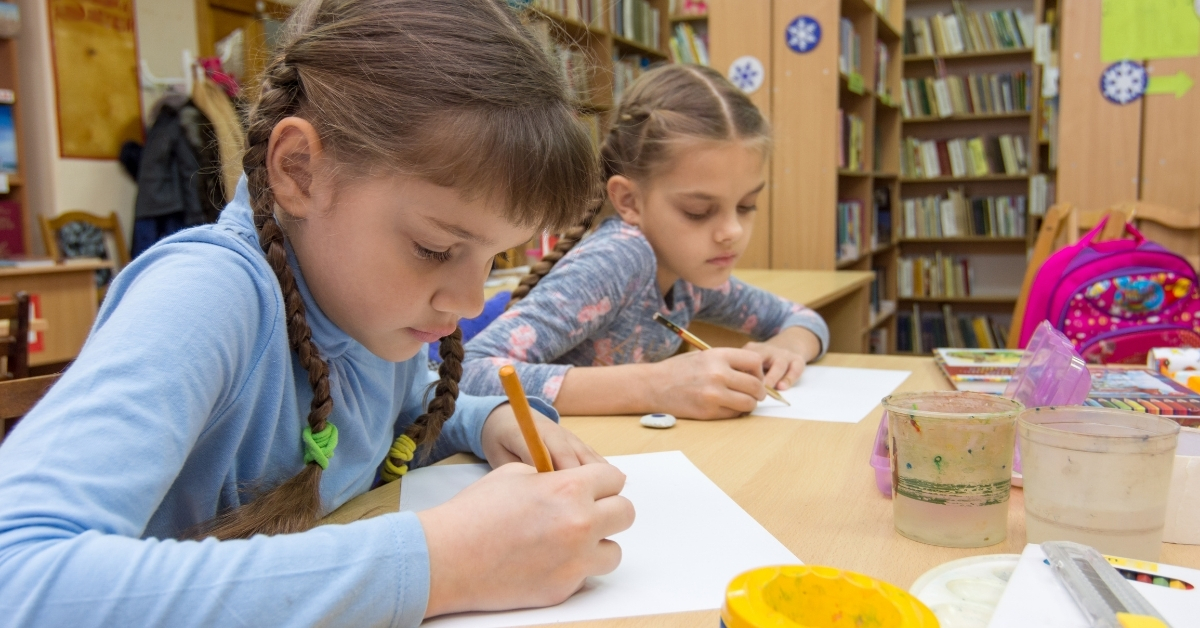When children participate in extracurricular activities from a young age, it plays an essential role in their development and gives positive benefits for both parents and educators. The following essay explores how participating in extracurricular practices could foster several personal characteristics to enhance every schooler’s behaviours during studying or leisure activity related to curriculum subjects through various ways mentioned below:
1. Enhancing Physical and Mental health
One of the most evident benefits of extracurricular activities is that they include physical fitness, training discipline, and developing teamwork. These activities promote a healthy lifestyle for children, stress management helps increase concentration, and promote good academic performance in learners. For instance, engaging in sports daily not only enhances the motor skills of children but also coordination and endurance; it teaches them to follow the rules while working with others as well as setting particular goals.
Strengthening Motor Skills :
Participating in sports dances, and extra-curricular activities improves the gross motor skills needed for all sorts of tasks. These activities develop coordination, balance, and self-esteem in a child contributing positively towards her/his overall physical development.
Discipline and Goal-setting:
Participating in regular out-of-class activities creates a sense of responsibility and discipline. Be it about practicing an instrument or simply engaging in team sports, children learn these skills properly and they acquire some important qualities such as planning their time wisely and setting long-term goals which develop into perseverance and resilience that can apply to academics the rest of life.
2. Fostering Creativity and Artistic Expression
Participating in activities beyond academics also helps to develop creative thinking, self-expression, and imagination. These activities encourage children to engage in their artistic talents, improve self confidence, and develop a greater appreciation for all kinds of art forms. For instance, activities like art dance, music, and drama enable children to express themselves with freedom of creativity as well as allowing their artistic instincts to develop through imaginative play.
3. Cultivating Leadership and Social Skills
An additional advantage of extracurricular activities is that they develop leadership traits, cooperation with children, and other values such as empathy. Through these activities, children engage and communicate outside the classroom setting thus becoming acquainted with cooperation, sharing, and good communication. These social skills contribute greatly to how children develop a capacity for forming healthy, helpful relationships both with their peers and adults.
For instance, clubs where children take part in activities like organizing events or fundraising for a certain cause creates awareness of global and community issues; student organizations especially those related to social responsibility aspects are the best ways as children can raise concerns with others at their level about certain justice matters.
4. Developing Critical Thinking and Problem-Solving Abilities
It is also a fourth benefit that extracurricular activities help children develop their critical thinking, analytical skills, and problem-solving abilities. These activities make children think outside of box, link theoretical ideas to real-life situations and adopt a scientific attitude. For example, debate clubs, science fairs, and even robotics programs become environments where children encounter a variety of perspectives, arguments, and evidence as well as gain mastery in researching, experimenting or inventing things.
5. Cultivating Cultural Awareness and Global Perspective
An additional advantage of an extracurricular program for children is that it widens their views, encourages cultural awareness, and creates thinking about our global world. These activities also place children in environments of different cultures, languages, and traditions which makes them appreciate diversity and thus respect differences. For instance, language clubs, cultural festivals, and international exchange programs provide children with the opportunity to learn new languages, discover new customs, and experience different places enabling them to broaden their outlooks in preparation for the global world.
Sparking Curiosity, Fueling Lifelong Learning:
Cultural diversity is the catalyst of curiosity. Language clubs foster the desire to acquire new languages, and after that interest arises in reading various literatures and perspectives. When you study other art forms such as dance or music, a world opens up for exploring the history and emotions that are realized in those traditions. This curiosity becomes a motivating factor in life that nourishes the minds of children making them better contemporaries in understanding how they make sense of their surroundings.
Conclusion
It can be said that extra-curricular activities form an important part of a child’s education, providing opportunities not just academic in nature. These activities allow for physical, mental, creative and social development which in turn contribute to becoming well-rounded people. Children exposed to extracurricular activities will be able to identify their talents, develop them, and enjoy practicing what interests them or turning it into beneficial fun laughs while meeting new friends. Therefore, parents and educators of children should promote them to proper activities outside classes as they are essential in shaping their overall growth and being generally healthy.








Be the first one to comment on this story.